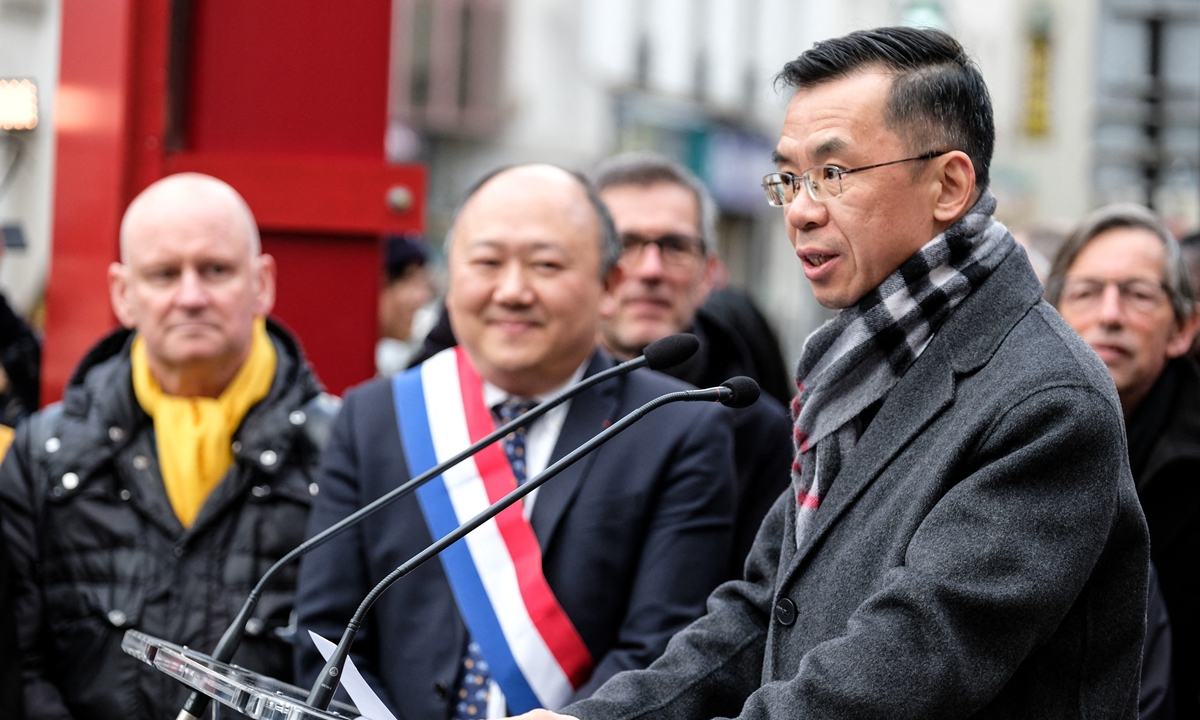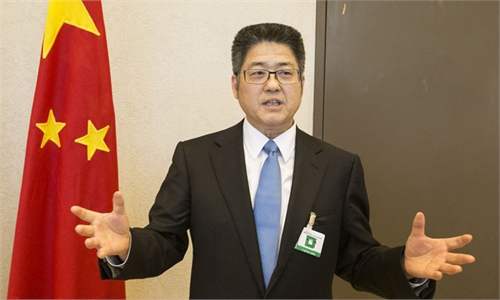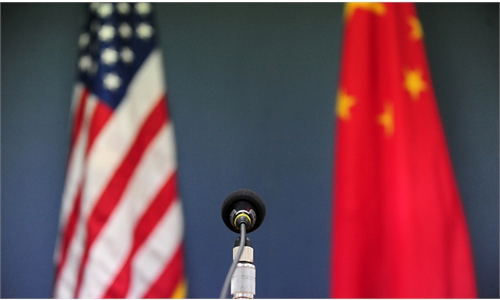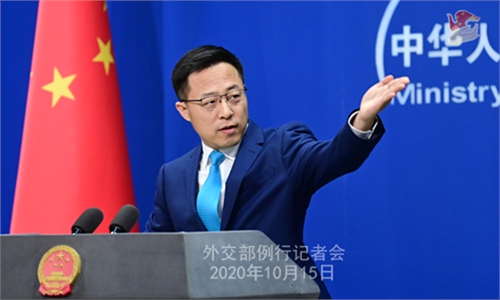Outspoken Chinese envoys stick to 'self-defense' diplomacy for respectable national image

Lu Shaye (right), ambassador of China in France. Photo:AFP
Outspoken Chinese ambassador to France Lu Shaye has drawn attention recently for being the first Chinese diplomat to justify China's "self-defense" diplomacy amid foreign media's groundless speculation that making a "lovable" China would mean abandoning the so-called "wolf-warrior" diplomatic style.
Analysts said Lu's remarks signal the country is not reversing its "self-defense" diplomacy and that it will not give up in actively defending itself against the smear campaign of the West.
It is malicious for Western countries to call Chinese diplomats "wolf warriors" in order to portray an aggressive image of China in the global narrative battle, experts said. Amid the anti-China campaign led by the US, China has to respond to the slander and smears to earn respect and an equal position, which doesn't contradict the Chinese leader's message of fostering an image of China that is trustworthy and respectable.
In an interview with French newspaper L'Opinion on Tuesday, Ambassador Lu talked about his idea of "wolf warrior diplomacy," saying that "wolf warrior" is a positive term in China which refers to warriors who fight for the country.
Since there are so many "mad dogs" attacking China, "I am honored to be awarded the title. We are fighters who stand in front of the motherland and fight for her, and we want to stand in the way of 'mad dogs' that attack China."
This is the second time Lu talked about "wolf warrior diplomacy" in public in two weeks, making him the first Chinese diplomat to publicly endorse China's current diplomacy after many foreign media, such as Deutsche Welle, misinterpreted Chinese President Xi Jinping's message on May 31 and claimed China was "abandoning" wolf warrior diplomacy.
When addressing the group study session of the Political Bureau of the Communist Party of China Central Committee on May 31, Xi urged the creation of an image of China as "reliable, admirable and respectable."
Foreign media interpreted that China seeks to make "lovable" image globally.
"Saying that China will reverse from 'wolf warrior diplomacy' to building a lovable image is some Western media's wishful thinking, as the phrase 'wolf warriors' they made for China out of malicious purposes did not fit the fact - China has never taken the initiative to attack them," said Zheng Ruolin, a senior Chinese media professional and European studies expert based in France.
Lu also told L'Opinion that China has never been the one that made provocations, and it just defends itself to safeguard national interests, image and dignity.
"Why do media in the West accuse China's diplomacy as 'aggressive' or 'wolf warrior diplomacy?' China has never been an aggressor, yet in the past year, has been criticized on multiple fronts," Lu said. "Don't we have the right to fight back and defend ourselves? This is not fair!"
Instead of being aggressive, China's current diplomacy is more defensive and assertive, which doesn't contradict with being "reliable, admirable and respectable," analysts said.
Zheng noted that China has always been committed to being a "reliable, admirable and respectable" country, but it does not mean it will kneel and raise its hands when facing smears and attacks. "If we give an inch to those who groundlessly attack China, they will want a yard. Only a justified fight-back can help earn equality and respect."
In the face of the US and Western allies' rampant smears and attacks against China on topics like Xinjiang, Hong Kong, Tibet, Taiwan and origins of COVID-19, Chinese ambassadors, spokespersons of the Foreign Ministry and embassies have spoken out or released statements to refute rumors.
For example, since June 1, the majority of the releases published on the website of the Chinese Embassy to Canada are about refuting rumors as well as opposing the Canadian government's political farce on China topics. Soon after news on Budapest mayor's wrong remarks on China's human rights situation, the Chinese Embassy in Hungary on June 6 expressed opposition and dismissed the misinformation.
"Only by striking a blow to those who smear China can they feel the pain and rethink their moves that have poisoned bilateral ties. This is also the way to ensure that true information about China would not be blocked by the West," Li Haidong, professor at the Institute of International Relations of the China Foreign Affairs University, told the Global Times.
"We Chinese always say that we treat friends with delicious food and wine, and we treat jackals and wolves with guns," Li said, noting that building a lovable image in the majority of the people in the world should be China's main focus.
Lu also said although China was accused by the French media, it was also supported by the French people. And that the French people can access an alternative source of information on our publication, not just following the mainstream French media's distorted reports on China.
"China will continue to defend itself from untenable smears and attacks. It is China's right and also shows China's efforts to improve its image while living peacefully with other countries. But this should not be an excuse for certain countries to stigmatize it," Wang Wen, a professor and executive dean of the Chongyang Institute for Financial Studies at Renmin University of China, told the Global Times.





